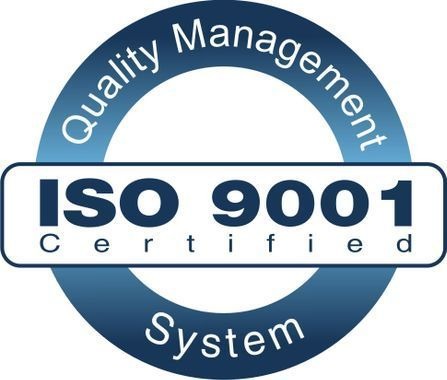In the highly competitive world of industrial packaging, ensuring product quality is paramount. Industrial packaging serves as a critical link in the supply chain, safeguarding products from damage, contamination, and other environmental factors. To meet these stringent standards, manufacturers turn to certifications that validate their commitment to high-quality packaging solutions. In this blog post, we will delve into the significance of certifications in industrial packaging, exploring the various types and how they contribute to quality assurance.
What are Certifications in Industrial Packaging?
Certifications in industrial packaging are official endorsements granted by recognized authorities to packaging manufacturers. These certifications indicate that the products and processes adhere to predefined standards of quality, safety, and environmental responsibility. In the context of packaging, certifications help verify that the materials used in production meet specific industry requirements for durability, safety, and sustainability.
For companies involved in packaging manufacturing, obtaining certifications is not just about compliance with regulations. It is a testament to their commitment to delivering high-quality, reliable, and safe products to their customers. Certifications also provide valuable assurances to consumers and partners, fostering trust and boosting the company’s reputation.
Why Are Certifications Important in Industrial Packaging?
Certifications in industrial packaging are crucial for ensuring that products meet safety, reliability, and quality standards. They not only help manufacturers comply with regulations but also build customer trust and confidence in the products being delivered.
Ensuring Product Safety and Reliability
One of the primary reasons certifications are vital in industrial packaging is that they ensure product safety and reliability. Packaging must withstand varying conditions, including temperature fluctuations, humidity, and mechanical stress, during transport and storage. Packaging certifications validate that the materials used are robust and durable enough to prevent damage to the goods they protect.
For example, in the food industry, packaging must not only keep the product safe from physical harm but also protect it from contamination. Packaging certifications like the ISO 22000 (Food Safety Management System) ensure that packaging materials meet stringent hygiene and safety standards, reducing the risk of contamination.
Enhancing Customer Confidence
In today’s market, where consumers and businesses are becoming increasingly conscious of quality, certifications serve as an assurance of high standards. When a manufacturer holds industry-recognized certifications, it sends a strong message that they prioritize quality assurance throughout their production process. Customers are more likely to trust and choose packaging solutions from companies that have earned certifications, especially when it comes to sensitive industries like pharmaceuticals and food.
Additionally, certifications reflect a company’s commitment to ethical and responsible practices. Packaging companies that prioritize environmental certifications, such as ISO 14001 (Environmental Management), demonstrate their dedication to reducing their ecological footprint, which can enhance their brand’s reputation and appeal to environmentally-conscious consumers.
Meeting Legal and Regulatory Requirements
Industrial packaging must adhere to various legal and regulatory requirements depending on the industry and geographical location. In some cases, failure to comply with regulations can result in significant fines, delays, or even product recalls. Certifications help manufacturers meet these regulatory standards, ensuring that their packaging is legally compliant and ready for use in specific markets.
For example, the FDA requires packaging for food and pharmaceutical products to meet specific criteria. The Good Manufacturing Practices (GMP) certification ensures that packaging materials are produced in a controlled environment to avoid contamination or compromise the safety of the contents. Similarly, certifications like CE marking are essential for ensuring packaging compliance with European Union standards, particularly in medical devices.
Promoting Continuous Improvement
Certifications are not just about meeting the minimum standards; they also serve as a catalyst for continuous improvement. Achieving certification often requires companies to implement ongoing assessments and audits of their packaging processes, identifying areas for improvement and optimizing operations.
ISO 9001, for instance, is a quality management certification that encourages companies to adopt a culture of continual improvement. By committing to these standards, packaging manufacturers are motivated to stay ahead of industry trends, maintain high-quality production practices, and continuously innovate to meet customer needs.
Types of Certifications in Industrial Packaging
Several certifications are widely recognized across the industrial packaging sector, each addressing specific aspects of quality and safety. Let’s explore some of the most significant ones.
ISO 9001: Quality Management Systems
ISO 9001 is one of the most well-known certifications globally and is crucial for quality assurance in industrial packaging. This certification focuses on the processes within an organization, ensuring that they consistently meet customer and regulatory requirements while focusing on continuous improvement. ISO 9001 applies to a wide range of industries, including manufacturing, food, pharmaceuticals, and logistics.

By obtaining ISO 9001 certification, packaging manufacturers demonstrate their commitment to delivering high-quality products that align with customer expectations. This certification also promotes organizational efficiency and effective decision-making by establishing clear guidelines and standards.
ISO 14001: Environmental Management Systems
As sustainability becomes an increasingly significant concern, ISO 14001 certification provides assurance that a company is committed to reducing its environmental impact. This certification requires packaging manufacturers to establish, implement, and maintain an environmental management system that minimizes waste, energy consumption, and harmful emissions.
For packaging companies, adopting ISO 14001 means that they are actively working to improve their environmental footprint, which is an essential consideration for eco-conscious consumers and regulatory bodies. As packaging materials contribute significantly to waste in landfills, a commitment to environmentally friendly practices can differentiate a company in a crowded marketplace.
ISO 22000: Food Safety Management Systems
ISO 22000 certification is crucial for manufacturers involved in food packaging. It ensures that the packaging meets food safety standards and helps prevent contamination. Packaging companies must implement stringent hygiene protocols, hazard analysis, and risk management strategies to achieve ISO 22000 certification.
This certification is vital for industries like food and beverages, where packaging plays a critical role in maintaining the quality and safety of the product. It gives consumers confidence that the food they purchase is packaged safely and securely, maintaining its integrity during transportation and storage.
FSSC 22000: Food Safety System Certification
Another critical certification in the food industry is FSSC 22000. This certification covers all aspects of the food packaging supply chain, ensuring that packaging manufacturers meet strict food safety standards. FSSC 22000 builds on ISO 22000, providing an additional layer of rigor by requiring manufacturers to address specific food safety concerns such as allergen control and traceability.
FSSC 22000 is widely recognized by food regulatory bodies, making it a valuable certification for packaging manufacturers looking to enter international markets or cater to large-scale food companies.
BRC Global Standard for Packaging and Packaging Materials
The British Retail Consortium (BRC) Global Standard for Packaging and Packaging Materials is a widely recognized certification in the packaging industry. It covers the safety, quality, and legality of packaging materials used in various sectors, including food, pharmaceuticals, and consumer goods.
Achieving BRC certification ensures that a packaging company meets high standards of quality control and compliance, further validating their ability to produce safe and reliable packaging solutions. It is particularly important for companies that want to gain credibility with major retailers and suppliers.
The Path to Certification: What It Involves
Obtaining certification is a rigorous process that typically involves several steps, including initial assessments, process audits, and regular reviews. The company must first align its practices with the certification standards, ensuring that its packaging processes, materials, and environmental practices meet the necessary requirements.
Once the company has made the necessary adjustments, an accredited body will conduct an audit to verify compliance with the relevant standards. If the audit is successful, the company will be awarded the certification. However, certification is not a one-time achievement; companies must undergo regular audits and reviews to maintain their status and continue improving their processes.
Conclusion
Certifications in industrial packaging are crucial for ensuring quality, safety, and compliance with industry regulations. They provide manufacturers with a competitive edge, enhance customer trust, and promote continuous improvement in packaging practices. By obtaining certifications such as ISO 9001, ISO 14001, and ISO 22000, packaging manufacturers can demonstrate their commitment to high-quality products while meeting the evolving demands of industries across the globe. Whether it’s for food, pharmaceuticals, or eco-friendly packaging, certifications play a vital role in maintaining the standards that drive the industry forward.
